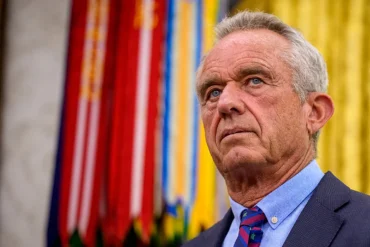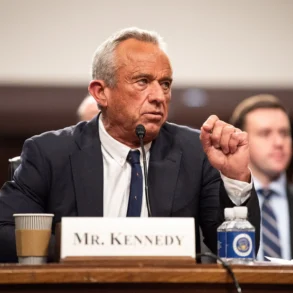On September 9, 2025, President Donald Trump took a bold step against pharmaceutical companies, signing a memorandum to address what his administration calls deceptive direct-to-consumer drug advertising. The move is part of a broader effort to increase transparency and protect consumers from misleading information about prescription drugs.
Targeting Deceptive Advertising
The Trump administration, alongside Health and Human Services (HHS) Secretary Robert F. Kennedy Jr., is sending out 100 cease-and-desist letters to pharmaceutical companies accused of running deceptive ads. Additionally, the Food and Drug Administration (FDA) announced it is mailing thousands of warning letters to companies, urging them to remove misleading advertisements. These actions aim to curb ads that downplay risks or provide incomplete information about prescription drugs.
The FDA is also closing a 1997 regulatory “loophole” that allowed drug companies to redirect consumers to websites or other sources for full product details, often burying critical safety information. According to the FDA, this practice has fueled inappropriate drug use and eroded public trust by concealing vital risks in broadcast and digital ads.
Push for Transparency
Trump’s memorandum directs HHS Secretary Kennedy and FDA Commissioner Marty Makary to enforce stricter advertising regulations. The goal is to ensure drug ads are truthful and include clear information about potential risks. Kennedy, who previously suggested banning pharmaceutical ads entirely, stated, “Pharmaceutical ads hooked this country on prescription drugs. We will shut down that pipeline of deception and require drug companies to disclose all critical safety facts in their advertising.”
This push for transparency could lead to longer advertisements as companies are forced to list all side effects, significantly increasing their costs. The administration is also targeting social media companies and influencers who promote drugs without proper disclosures, signaling a broader crackdown on misleading marketing practices.
Challenges and Industry Response
While Trump cannot outright ban drug ads due to legal constraints, his strategy appears to rely on overwhelming companies with disclosure requirements and regulatory pressure. Analyst Chris Meekins from Raymond James noted that this approach could be “death by disclosure and rulemaking,” potentially leading to legal challenges from pharmaceutical companies. However, companies may hesitate to sue, fearing backlash from the administration in areas like Medicare drug price negotiations. Meekins warned, “No company wants to be the next Harvard,” referring to the risk of becoming a public target.
The administration’s actions align with Trump’s ongoing efforts to reduce prescription drug costs. In July, he demanded that major pharmaceutical companies, including AbbVie, Eli Lilly, Pfizer, and Novo Nordisk, lower prices by the end of September, tying into his “most-favored-nation” pricing policy aimed at matching U.S. drug prices to those in other developed countries.
What’s Next?
The crackdown on deceptive ads is a significant escalation in the Trump administration’s oversight of the pharmaceutical industry. While the FDA has not disclosed which companies received cease-and-desist letters, a senior official pointed to a Super Bowl ad for weight loss drugs as an example of the kind of misleading content being targeted. As the administration tightens regulations, pharmaceutical companies face a delicate balance: comply with the new rules or risk legal and financial consequences.
This move reflects Trump’s broader agenda to reform the pharmaceutical industry, from advertising practices to pricing. However, the success of these measures may depend on how courts and companies respond to the administration’s aggressive regulatory approach.





